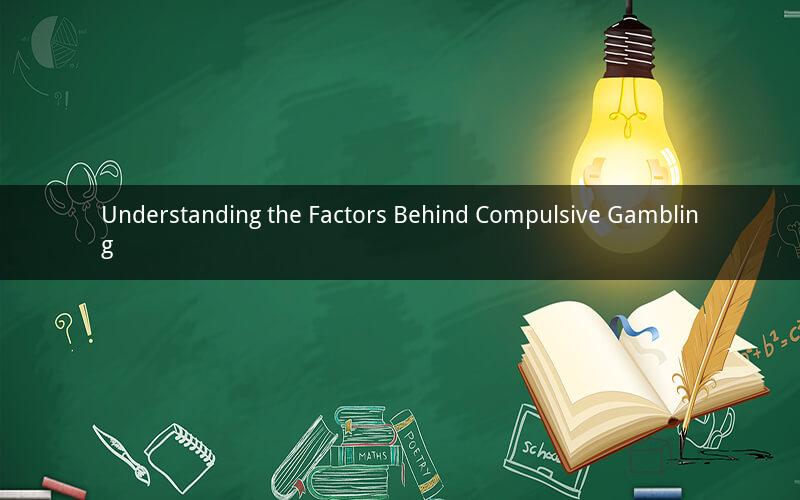
Compulsive gambling, often referred to as gambling addiction, is a complex issue that affects millions of people worldwide. It involves a compulsive urge to gamble, despite the negative consequences that it may have on an individual's life. In this article, we will explore the various factors that contribute to the development of compulsive gambling, aiming to provide a comprehensive understanding of this condition.
1. Genetic Factors
One of the key factors that contribute to compulsive gambling is genetics. Research suggests that there is a genetic predisposition to gambling addiction, with certain genes playing a role in the development of this condition. Individuals with a family history of gambling addiction are at a higher risk of developing the disorder themselves.
2. Psychological Factors
Psychological factors also play a significant role in the development of compulsive gambling. Individuals who have low self-esteem, depression, anxiety, or other mental health issues may be more susceptible to gambling addiction. These individuals may turn to gambling as a way to cope with their emotional pain or to escape reality.
3. Environmental Factors
The environment in which an individual grows up can also influence their likelihood of developing compulsive gambling. For example, living in an area with a high concentration of casinos or gambling venues can increase the chances of exposure to gambling and, consequently, the risk of developing an addiction. Additionally, individuals who are exposed to gambling at an early age may be more prone to developing an addiction later in life.
4. Social Factors
Social factors, such as peer pressure, family dynamics, and cultural norms, can also contribute to the development of compulsive gambling. For instance, individuals who are surrounded by friends or family members who engage in gambling may feel compelled to participate in order to fit in. Moreover, some cultures may view gambling as a normal and acceptable activity, which can further encourage individuals to engage in risky behaviors.
5. Economic Factors
Economic factors, such as financial stress or the desire to win money, can also play a role in the development of compulsive gambling. Individuals who are struggling financially may be more inclined to turn to gambling as a means of relief or as a way to make money. However, this often leads to further financial problems and a worsening of the addiction.
6. Treatment and Recovery
For those struggling with compulsive gambling, treatment and recovery are crucial. Various treatment approaches, such as cognitive-behavioral therapy, group therapy, and self-help programs, have been shown to be effective in helping individuals overcome their addiction. It is essential for individuals to seek support from friends, family, or professionals to aid in their recovery journey.
Q1: How can a person recognize if they have a gambling problem?
A1: A person may have a gambling problem if they experience persistent urges to gamble, continue gambling despite negative consequences, lie about their gambling activities, and experience withdrawal symptoms when they try to stop.
Q2: Can compulsive gambling be treated?
A2: Yes, compulsive gambling can be treated. Effective treatment approaches include cognitive-behavioral therapy, group therapy, self-help programs, and support from friends, family, or professionals.
Q3: Are there any medications that can help treat compulsive gambling?
A3: While there are no specific medications approved for the treatment of compulsive gambling, certain medications may help manage the symptoms of underlying mental health conditions, such as depression or anxiety, that contribute to the development of the addiction.
Q4: How can family members help a loved one struggling with compulsive gambling?
A4: Family members can help their loved one by offering support, encouraging them to seek treatment, and maintaining open communication. They can also learn about compulsive gambling and its treatment options to better understand and cope with the situation.
Q5: What can be done to prevent the development of compulsive gambling in children?
A5: To prevent the development of compulsive gambling in children, parents and caregivers should monitor their exposure to gambling, teach responsible gambling habits, and foster a healthy, supportive environment. By promoting positive coping strategies and addressing any underlying mental health issues, the risk of developing a gambling addiction can be reduced.